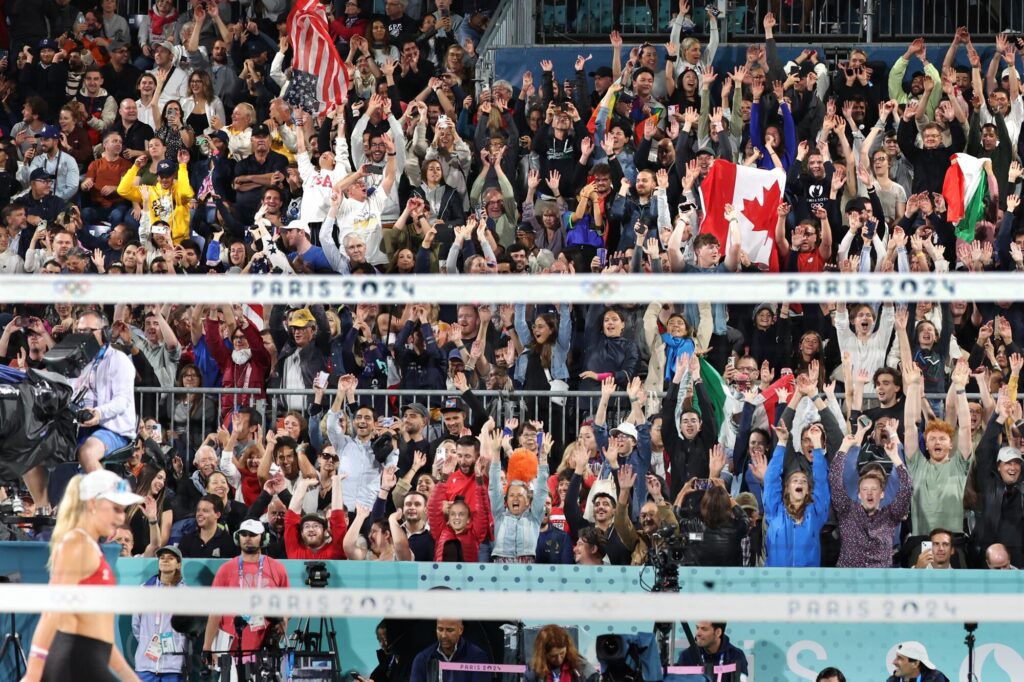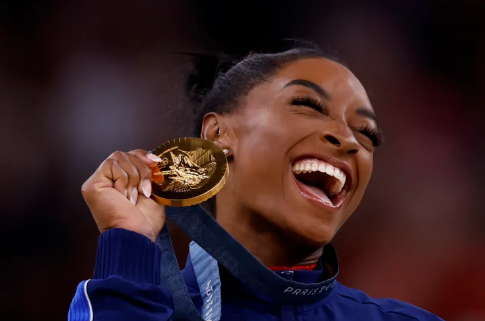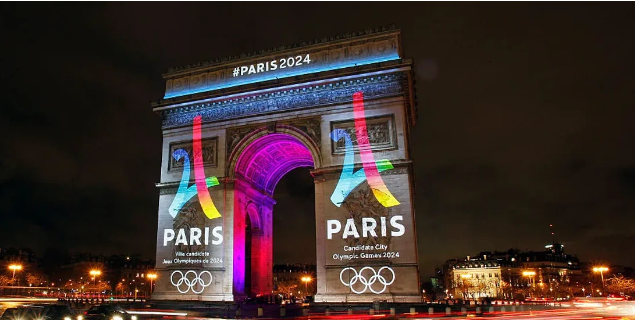Paris Hosts Grande Olympic Games of Sport & Hope in Divided World
August 8, 2024
As the Paris Olympic Games enters its final weekend, Michael Pirrie reviews the highlights and lessons of the world’s premier global sporting event.
The Olympic Games means the world to sport but the wider world in which it exists is increasingly ruptured and challenged by a rapidly changing and uncertain global environment.
Paris showed there is still hope.
Athletes, teams and officials from nations fractured by political conflict and violence embarked on an unlikely journey of hope from war to sport in the French capital.
As the Paris Olympiad moves into its final weekend, it is clear the Games has been a triumph for the IOC, for France, its iconic capital, and for Olympic Movement
Paris provided a unique opportunity to bring the Games back to the home of its founder Pierre de Coubertin and reconnect with his vision for the event to build relationships, dialogue and understanding between nations towards peace.
Paris Fills Void in Uncertain World
With a global movement and conditions threatening the status quo, Paris reinforced the Olympic Games as the pinnacle of world sport.
Paris has been a success for international Olympic sports federations, National Olympic Committees, broadcasters and worldwide partners and sponsors.
The Games has showcased the Olympic experience, athletes and sport in iconic venues and electrifying Parisian atmosphere.
Venues were full and loud; the host city was vibrant; and sport captivating like Paris itself.

Paris filled a void in a fragile world like Tokyo did, bringing the world together remotely in a global pandemic
The French Games further underlined the Olympics as the world’s most important global sporting event dedicated to peace
Paris came at a pivotal moment for the Olympic movement and the world, on the brink of full-scale war in the Middle East and threats of nuclear annihilation in Europe, the Olympic Movement’s home continent
The Paris Games resembled an international sport census and consensus on sport; a global communal gathering of athletes from more than 200 nations and territories, more than the number of member states in the United Nations
Nations across the political spectrum, even some of the most isolated and extreme attended Paris, including North Korea after the reclusive nation missed Tokyo because Covid.
While some individual athletes secured more medals than entire smaller nations, some of which sent only 1 competitor – just making it to Paris was an achievement for many countries that meant more than competing in a deeply divided world.
The team from Ukraine was greatly diminished in size due to the death toll and casualties inflected by Russia but its presence in Paris symbolised its existence and survival as a nation.
The multiple gold, silver and bronze medals won by Ukraine’s athletes have inspired the devastated nation and the world beyond, symbolising strength and spirit in the darkest of times.
This was a powerful statement of trust and hope in sport and peace in a world divided by war, deepening social inequality and disadvantage, authoritarian governments and racial and religious motivated terrorism.
“This culture of peace was, and always will be at the heart of our Olympic community,” IOC President Thomas Bach, said as the Israeli victims of the Munich 1972 Olympic Games massacre – described by Bach as “the darkest day in Olympic history”- were remembered at a ceremony in Paris
Paris pointed to new directions, priorities and concerns for world sport.
The Games was the biggest sporting event ever staged and the biggest security operation as well, with a ring of steel reportedly involving 75,000 police and military officers stretching around the Olympic rings to protect Paris.
With the presence of Israeli athletes in Paris amid on going conflict in Gaza, team members are escorted by elite tactical squads, with tensions heightened following reports of threats against Israelis at the Games.
Paris 2024 was a milestone for the Olympic Movement
There had not been a fully successful Games since London, and Paris was the moment the Olympic Movement had been waiting for.
Paris enabled the Games to return to a major European capital, with no major organisational problems or scandals, a beautiful host city, world famous venues and huge potential audiences.
This was the opportunity for the Games to recover from the isolation and emptiness of Covid and return to its premier status in the world.
Paris captured and held the world’s attention amid the catastrophe of war, political unrest, and declining economic and social conditions.
This was the world’s most screened and streamed sporting event, out rating Netflix.
Paris redefined the appearance of the Games, integrating the mega event into and around host city venues and settings like never before
The French capital produced its own cinema verite with the sport superstars, soundstage, landmark locations and extras needed for a global hit.
These included crowd favourites such as Tom Cruise, Eva Mendez, John Travolta and even Snoop Dog in roles as Olympic venue extras.
Paris also had a contemporary cinema feel that harked back to MGM spectaculars like an American in Paris.
Hollywood will need to produce its own blockbuster when the Olympic set and location moves to Los Angeles in four years.
Paris produced scripts with story lines so extraordinary they could have come straight from a Steven Spielberg ‘works in development’ production meeting.
These included an athlete whose great grandfather was on Schindler’s List, and while competing in Paris drew on the strength and spirit of her late grandmother who survived the Holocaust
Narrative Sport That Matters
The Holocaust survivor escaped to Paris in 1944, where 80 years later, her granddaughter, Jemima Montag, would win bronze in the Olympic race walk, finishing under the arches of the Eiffel Tower that once beckoned as a beacon of hope to her grandmother eight decades earlier.
Montag, representing Australia, was inspired by wearing her grandmother’s bracelet in Paris, marching in her memory and footsteps.
“She (her grandmother), teaches me to take one step at a time and it also puts things into perspective,” Montag once said. “Towards the end of the Holocaust they marched through the snow and cold for days on end in little sandals and hardly any clothing.”
Paris was ‘narrative sport’ at its most impactful with story lines of life imitating art so compelling and improbable they could have come from the Louvre.
These include US basketball star Brittney Griner coming back and challenging for a team gold medal after she was taken as a hostage by Russia shortly before invading Ukraine and later released in a prisoner swap.
These were stories the world was longing to hear; stories about overcoming adversity that gave hope in times of great adversity.
While great sporting events inevitably produce great sport, the Olympic Games is about more than sport and revealed more about the human condition and condition of the planet.
Cutting edge technology and vast sums of money used in a landmark effort to clean up the Seine River for Olympic swimming still couldn’t wash away concerns about the safety of the murky river.
The gender fight in boxing that has engulfed the Games, complicated by the credibility of the International Boxing Association and its Kremlin linked leader, indicates the dispute over ‘chromosome doping’ has deep and complex social and cultural origins as well as scientific ones and is a tragedy for all involved.

In a gender equal Games, women athletes gave the most inspiring performances – from legendary US swimmer Katie Ledecky to gymnast Simone Biles.
Teenage women skateboarders energised the Games.
Soaring so high in aerial rotations they may have needed a flight plan and parachute for landing, the teenager skateboarder also provided a new way of looking at the world and sport.
Arisa Trew, at 14, from Australia, was the youngest gold medal winner at the Games, said she had been motivated to win the competition after her parents promised her a pet duck.
Conclusion
The IOC sees the Games as a potential way to bring the world together. While the Games cannot stop wars, sport can help to highlight what’s important.
The Paris Games highlighted the increasingly urgent need for peace in a fragile world, in line with the vision of its founder whose hopes and dreams for the event remain as relevant as when the Games last visited de Coubertin’s home city in Paris 100 years ago.
The world will be hoping it does not take another century to return.
Michael Pirrie is an international Olympic and major events communications adviser and commentator who led the global media campaign for London’s successful bid to host the Olympic Games in 2012 against Paris, New York, Moscow and Madrid

